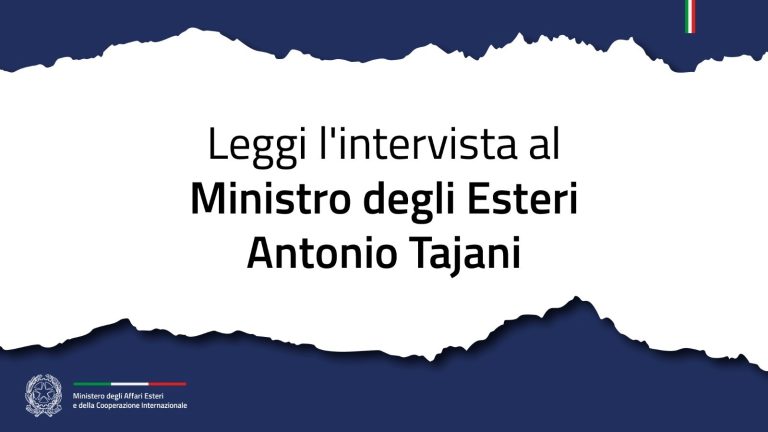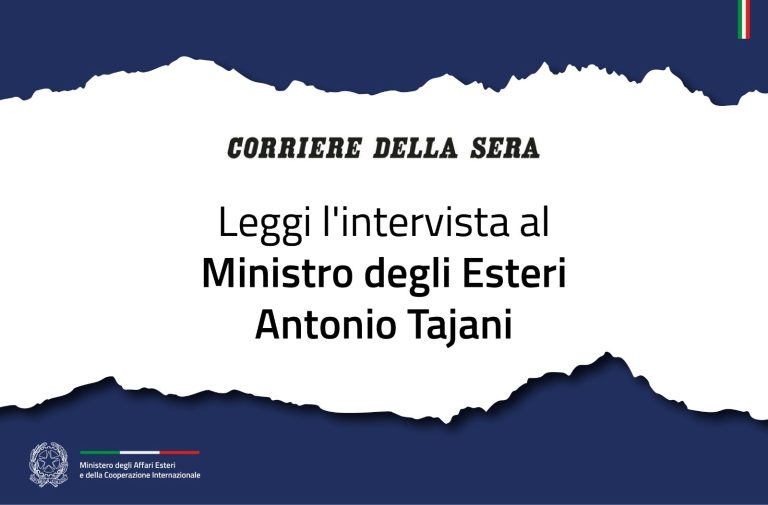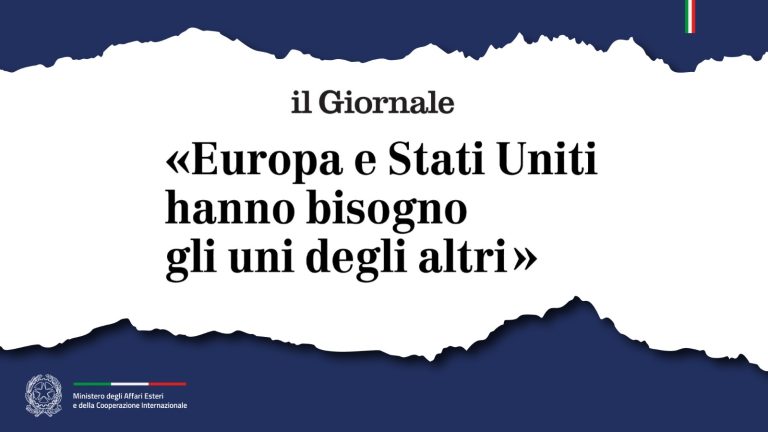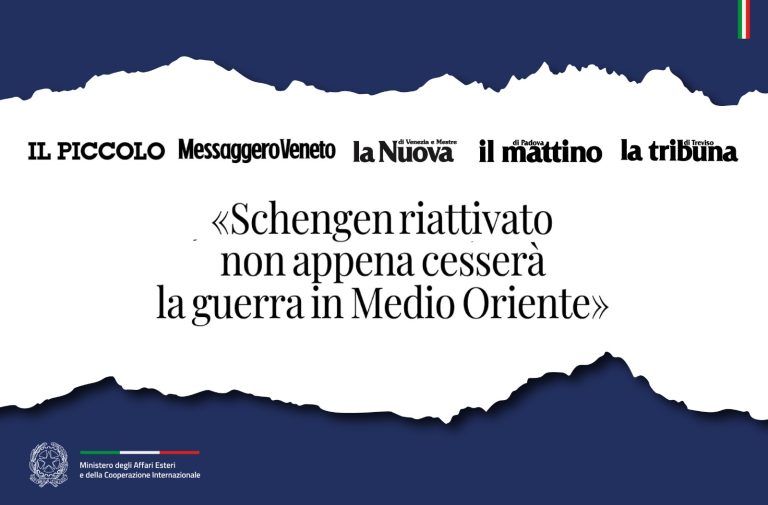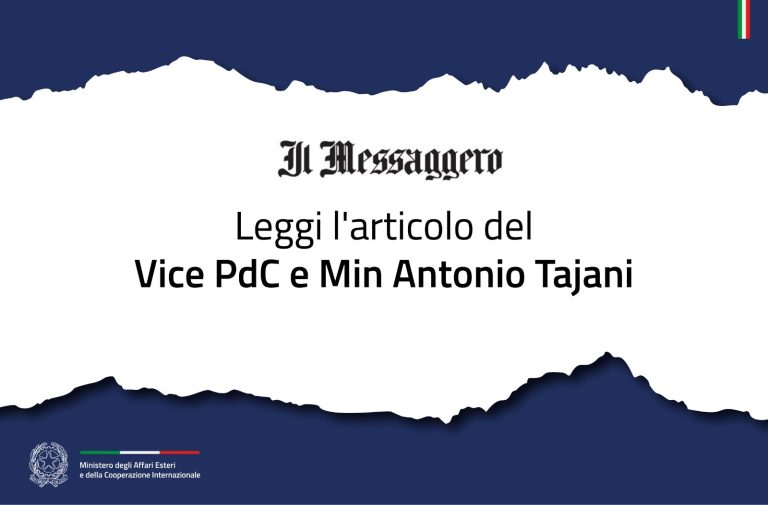Rome – Speaking from Brussels, where he is accompanying President Sergio Mattarella for two days of meetings with the heads of European institutions, Antonio Tajani provides an update on the situation in Ukraine: “It is a phase of uncertainty,” confirms the Italian Deputy Prime Minister and Minister of Foreign Affairs. “Talks of negotiations are beginning, but the road ahead is still long. I’ll just say this: Russia has a million armed men who earn twice as much as industrial workers, and an economy geared towards war. If the war ends, what will happen to these soldiers? How will Russia return to a peacetime economy? Moreover, the fronts of tension are multiplying and becoming interconnected: the Middle East, India, Libya, Iran–US relations… It is increasingly clear that we need a comprehensive, global reset. I’ve always said that those who believed peace could be achieved in a day were mistaken. We have a clear idea of the path to follow, but we must reckon with misunderstandings and hardening stances. We must always remain realistic”.
What are Italy’s “clear ideas”?
“First, we call for a ceasefire between Ukraine and Russia. Then a truce, and eventually peace, with the establishment of a ‘buffer zone’ under the auspices of the United Nations – which would certainly include Italy’s contribution. At the same time, Europe’s security must be guaranteed, from Ukraine to Portugal, through joint action with the United States. We must do more for our own defence – this means Europe must do more for its own security, but that doesn’t simply mean buying more cannons and tanks. And let me reiterate: our security always and in any case requires a synergistic effort with the US”.
In recent days, has there been a rebalancing between Europe and the US?
“There must be no imbalance or distance between the US and Europe. It is a natural relationship. At the start of the Trump era there was concern, but I always maintained that knee-jerk reactions were useless and harmful. Now we have a constant flow of relations, in which Italy plays a leading role”.
Still, peace seems to lack a “spark”: could the Holy See’s willingness to host talks help?
“I see it as an opportunity for everyone. The Vatican could play a fundamental role. Leo XIII’s address on peace is broad, prophetic, and goes beyond the political and economic interests that mark these ‘negotiating’ phases. It is a call for universal peace, for a different way for peoples to live together. So we’re talking about a fascinating idea – yes – but more importantly, a credible one, and a genuinely enabling one”.
Surely the Holy See would not be the place for delays and tactics, would you agree?
“Precisely: negotiations must happen at the right time. Russians and Ukrainians are Christians – this is a war between Christians. If they are to speak at the Vatican, it won’t be to maintain the status quo. Let’s be clear: the Vatican is not a hotel”.
In such a scenario, could Rome once again become a hub for talks among world powers, as during the papal transition?
“I believe the idea of Rome as the capital of peace could regain strength – a point of reference for resolving the conflicts of our time. It’s an important opportunity: Rome has already hosted US–Iran talks with Omani mediation, and in July it will host the major event on Ukraine’s reconstruction. Rome is home to the FAO, with which we coordinate food aid to Gaza”.
Yet Italy’s international role is always “under scrutiny”: last Friday in Tirana, there were fresh tensions with Macron’s France – not the best image for European countries…
“Misunderstandings and displays of ego may occur, but I believe we are now looking ahead. Excluding Italy is always a mistake”.
Still, from Italy’s side, isn’t it a mistake not to attend talks due to disagreements over strategy? In Tirana with Macron were two other countries opposed to sending troops – Germany and Poland…
“It’s right to be at the table, and we do not want to step back. But our position must be properly heard: if we want to build peace, saying we want to send troops to Ukraine is not a coherent signal. And anyway – where do these countries plan to find the thousands of troops to deploy? I’ve stated clearly what our position is: Italian soldiers will only go to Ukraine under UN authority”.
A question that’s beginning to circulate: would a potential peace also mean an international ‘rehabilitation’ of Putin?
“It’s a question that cannot be answered while we don’t even have a ceasefire in place. Our interest is in peace because where weapons pass, goods do not – and vice versa”.
Finally, Minister: the EU puts pressure on Putin through sanctions. Even though the scenarios are completely different, don’t you think Netanyahu should face much greater political pressure for what is tragically happening in Gaza?
“We are applying pressure every day, with no ambiguity – and we will continue to do so. But if we are asked to adopt unrealistic stances, I say: as a minister, I do what’s needed to stop innocent deaths – I won’t just say things that change nothing. It’s bitter to say it, but that’s how it is. I too support recognising Palestine, but if Italy does so unilaterally, it changes nothing. Israel and Palestine must recognise each other – at the culmination of a political and negotiating process. The concrete steps we must demand are for Hamas to release the hostages and leave Gaza, and for Israel to halt the military actions that are causing death and destruction. And all this must happen with no concessions to a new form of antisemitism”.


